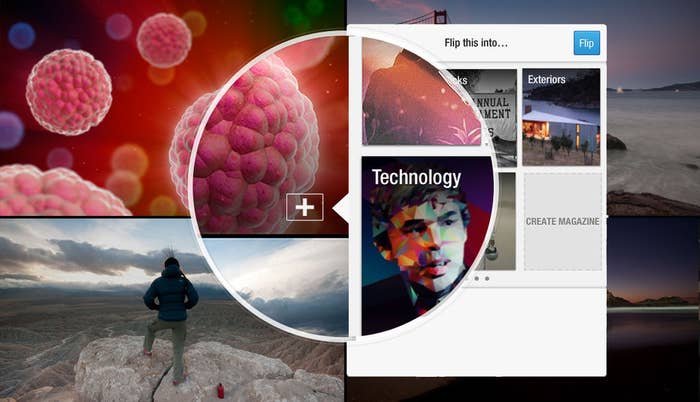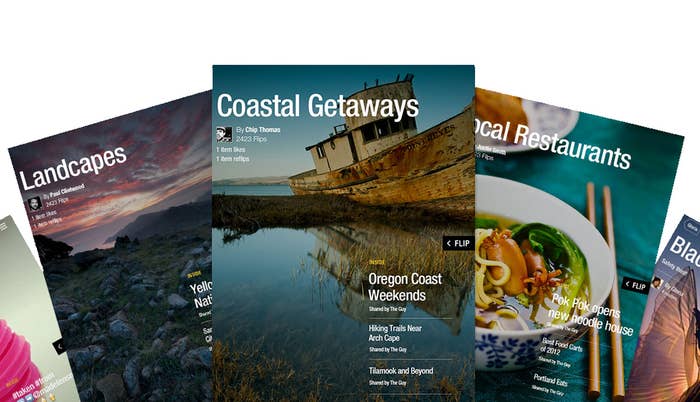
Last night, Flipboard launched a new version of its reader app that lets anyone with a smartphone or tablet to create custom "magazines" from virtually any piece of internet content — a tweet, a news story, a photo. Design has always been Flipboard's strongest element; the original app's neat repackaging of news stories and social feeds was what made it popular. Flipboard's newest edition, however, hints at something much bigger.
The update is a major push for Flipboard, which also announced yesterday that its user base has ballooned to 50 million users, up from 20 million just six months ago. GigaOm's Mathew Ingram called the new update "a little like Pinterest merged with Tumblr, crossed with a better-looking and more social version of Google Reader," which is a fair assessment of what the product looks like. However, the update reveals a greater ambition: Flipboard not only wants to redesign the internet, it wants to be the way you access it.

Flipboard's CTO Eric Feng was relatively forthcoming about the company's plans to reorient your internet experience. "We do believe Flipboard's vision is to redesign the internet around mobile and social," Feng told BuzzFeed, noting that while desktop browsing is generally a multitasking experience (tabbed browsing, applications, etc.), the mobile web is a more focused experience — and one that Flipboard wants to control and own.
Flipboard is staking a claim on hotly contested territory. Across the internet, tech companies are quietly fighting for the chance to own the next incarnation of the homepage. Yahoo is attempting to recapture its glory days as a portal through a site redesign and a series of news-oriented acquisitions like Snip.it, Jybe, and Summly, which it picked up this week. Digg, with its combination of algorithms and editorial staffers, is also vying for the front-page spot. And then, of course, there's the de facto entry points for the internet right now: Facebook, Twitter, and, as of late, LinkedIn, which has been hiring editors to collect and promote content to users (and just recently acquired its own reader app, Pulse). The homepage as you've come to know it is dead, but there's a host of companies who seem to believe it's worth replacing.
It's a difficult proposition, though. For one, companies like Flipboard remain at the mercy of Facebook and Twitter, both of which serve as sort of content backbones for the app. Flipboard assured BuzzFeed that any rumored tensions between the reader and major social networks were gone, noting that its product doesn't compete with but enhances the sites.
Yet the fact remains that even Twitter is slowly and deliberately moving in the same direction, with an endgame in common with Flipboard: to become your portal of choice.
